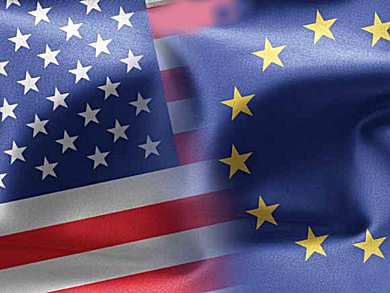In the United States, the chemical industry has joined environmental advocacy groups in calling for modernization of the Toxic Substances Control Act (TSCA) of 1976. Researchers at The School of Public and Environmental Affairs (SPEA), Indiana University, USA, are suggesting in a report that the U.S. should modernize their TSCA by adopting a simplified version of the EU law REACH (Registration, Evaluation, Authorization & Restriction of Chemical substances).
If the U.S. chooses to adopt a REACH-like system, unnecessary burdens on industry can be lessened by allowing for mutual, cross-Atlantic recognition of registration dossiers. U.S. policymakers should consider how they can build on the hard work that EU officials and industry have invested in the REACH registration process. The Congress should insist for example that any REACH-like system in the United States be designed on the principle of harmonized formats for data submission. More ambitiously, U.S. and EU policymakers should consider mutual recognition of registration dossiers.
This might be a long way, as many legal contracts make ECHA’s ability to share data claimed as confidential business information complicated. The European Chemical Agency (ECHA) would need further approval from the EU before it could actually provide the U.S. Environmental Protection Agency (EPA) access to the information within an agreement on protection of propriety data.
EPA’s already small TSCA program lacks the resources to handle the amount of chemical data like those required from companies under REACH. As the U.S. government tightens its budget, it is unlikely that Congress would expand this program. So the report suggests reforms to REACH that will allow priorities for government and industry attention to be less focused on warehousing of data and more focused on protecting human health and the environment. For example, the universe of substances covered by registration could be targeted more effectively, the compliance check process for submitted registrations can be more cost-effective, and the focus of several parts of the program should be directed more at specific, potentially risky uses of substances rather than the substances themselves.
The report suggests making more data on a substance’s safety public than is allowed under the EU system. Widespread availability of hazard and exposure information could prompt the private sector to adopt safety measures and substitution of safer substances. This could decrease the need for the government to regulate chemicals.
Also the public should be permitted to nominate substances of concern for consideration.
- Indiana University report
Regulating Industrial Chemicals: Lessons For U.S. Lawmakers from the European Union’s REACH Program - REACH – An Overview,
ChemViews Mag. 2012.
Registration, Evaluation, Authorisation and Restriction of Chemicals (REACH) is the European Union chemicals regulation
DOI: 10.1002/chemv.201200029




